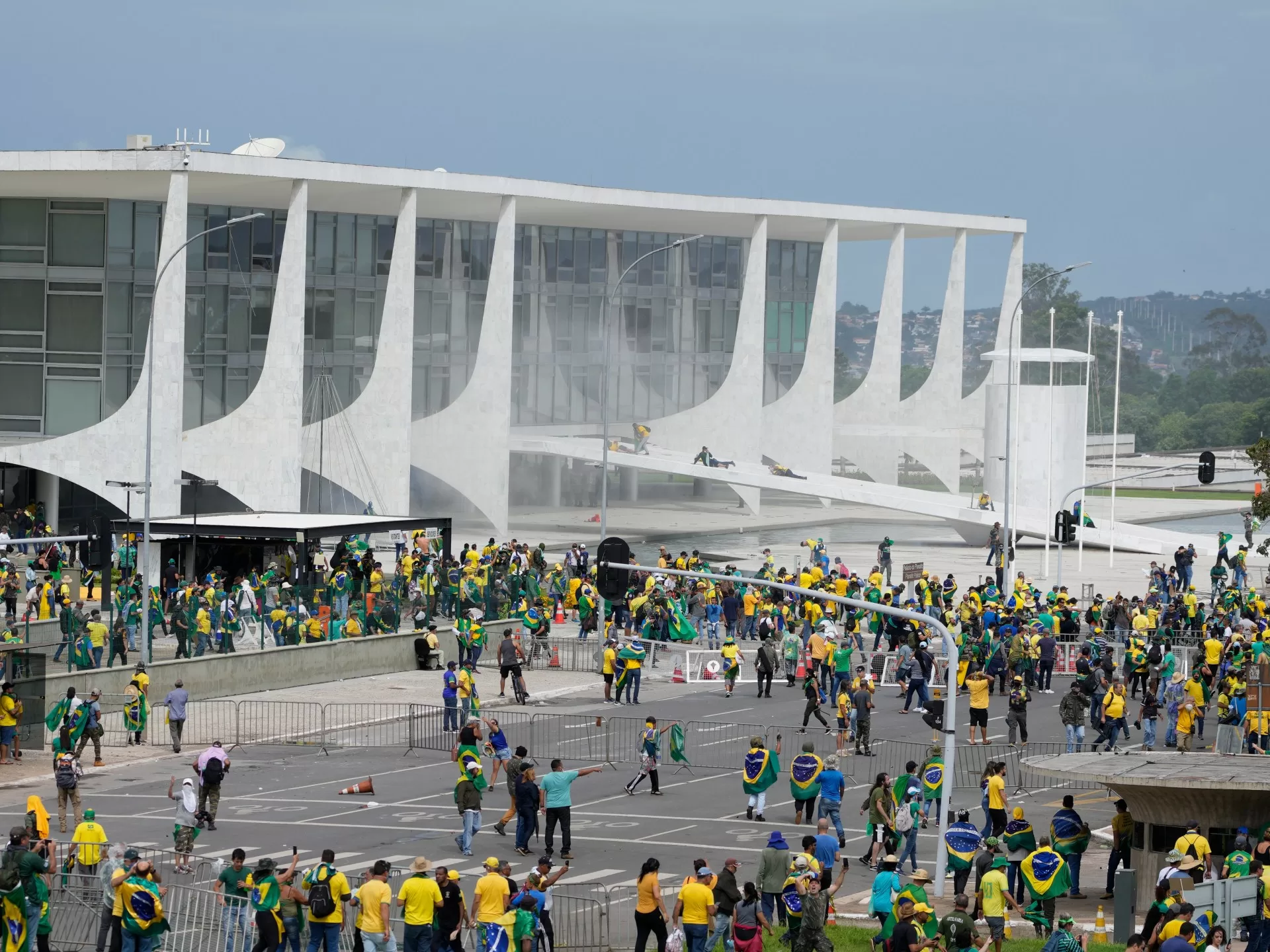Prosecutors hope to send the message that Brazil has ‘turned the page on the day of coups’, rejecting election-related violence.
Brazil’s Supreme Court justices kicked off the process on Wednesday, hearing testimony from participants and weighing potential convictions.
“We have turned the page on the days of coups. Those who embrace the spurious idea that power can be won through violence and in violation of constitutional norms must respond for the resulting crimes,” prosecutor Carlos Frederico Santos told the court.
The trials centre on the events of January 8, when thousands of Bolsonaro supporters amassed on the Three Powers Plaza in the capital Brasilia, breaking into the country’s Supreme Court, Congress and presidential palace.
The incident unfolded a week after Bolsonaro’s successor, Luiz Inacio Lula da Silva, had been sworn in as president.
The government has since moved to hold those involved to account. Government officials have been fired in the aftermath, and investigations have been opened into politicians and on-the-ground participants.
The attack on Brasilia has drawn comparisons to the storming of the United States Capitol building by supporters of former President Donald Trump on January 6, 2021. That effort also aimed to roll back an electoral defeat.
Bolsonaro testified before police in April about his conduct surrounding events on January 8, denying any involvement. He was in Florida at the time. President Lula, however, has accused Bolsonaro of planning the effort.
The former right-wing president has expressed open nostalgia for the period when Brazil was under military rule, after a coup in 1964. He also raised alarm in the lead-up to the October 2022 election by stirring unfounded rumours about widespread voter fraud and suggesting he would not leave office if defeated.
In the days following his loss, Bolsonaro did not concede defeat. Groups of his supporters, meanwhile, camped out in front of military buildings, calling on the armed forces to prevent Lula from taking office.
The atmosphere around the capital was tense: In December, when Lula’s election victory was certified, protesters attempted to storm the police headquarters in Brasilia. The Brazilian Supreme Court also issued a temporary ban on firearms in the federal district Brasilia sits in, after reports of violent plots.
That tension simmered over on January 8, with protesters damaging government property and calling for a coup.
On Wednesday, 51-year-old Aecio Lucio Costa Pereira was the first January 8 participant to appear before the court’s judges. He argued he was innocent of any wrongdoing and that he had only taken part in a peaceful demonstration of unarmed people.
Video footage from Brazil’s Senate building in January shows Pereira sporting a T-shirt calling for a coup and recording a video of himself, wherein he praised his fellow rioters.
By the end of the hearing on Wednesday, two justices — Alexandre de Moraes and Kássio Nunes Marques — signalled he should be found guilty, though they differed as to the extent of Pereira’s crimes. All 11 justices must weigh in before a ruling is issued, though.
